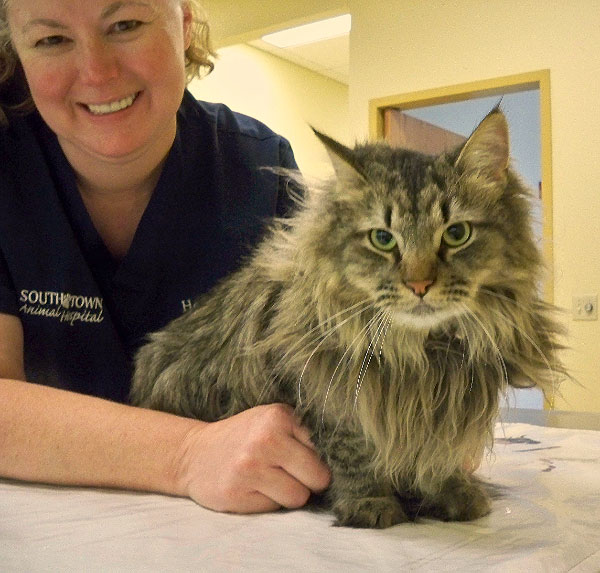What You Need To Know About Intestinal Parasites

South Town has seen an increase in the number of patients with intestinal parasites this summer. As a partner in your pet’s healthcare, we want to make sure you have the information you need to keep your pets free of these parasites.
Feline patients with intestinal parasites have increased significantly this year. South Town recommends yearly intestinal parasite screenings for indoor cats. Parasite eggs can be found in some potting soils or brought into your home on the bottom of your shoes. For any felines that have access to the outdoors we recommend Revolution, a monthly deworming medication in addition to the annual parasite screen.
Dogs are at risk for these parasites as well. Our veterinarians recommend giving your dog Heartgard or Sentinel (heartworm preventatives) year round because they also deworm for common intestinal parasites.
Unlike heartworms, that are tested using a sample of blood, intestinal parasites are found in your pet’s stool. The stool is mixed with a solution and spun down in a centrifuge. The parasite eggs float to the top of the solution and are collected on a slide and then examined under a microscope. If there are any eggs found, the parasite can be identified by the egg’s appearance. This will give the veterinarians the information they need to determine which deworming medication to prescribe.
Signs your pet has intestinal parasites:
-Diarrhea
-Vomiting
-Weight Loss
-Lethargy
-Bloody Stool
A stool sample, the size of a walnut, is all we need to run the intestinal parasite screening. We will have results for you the following business day.
Not sure if your pet has had a screening recently? Give us a call or email us.



